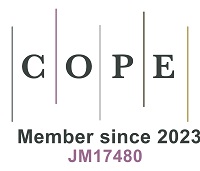REFERENCES
1. Vieira, L. C.; Longo, M.; Mura, M. Are the European manufacturing and energy sectors on track for achieving net-zero emissions in 2050? An empirical analysis. Energy. Policy. 2021, 156, 112464.
2. Anika, O. C.; Nnabuife, S. G.; Bello, A.; Okoroafor, E. R.; Kuang, B.; Villa, R. Prospects of low and zero-carbon renewable fuels in 1.5-degree net zero emission actualisation by 2050: a critical review. Carbon. Capture. Sci. Technol. 2022, 5, 100072.
3. IEA. How energy efficiency will power net zero climate goals; 2021. Available from: https://www.iea.org/commentaries/how-energy-efficiency-will-power-net-zero-climate-goals [Last accessed on 13 Jan 2024].
4. Costa, C. J.; Wollenberg, E.; Benitez, M.; Newman, R.; Gardner, N.; Bellone, F. Roadmap for achieving net-zero emissions in global food systems by 2050. Sci. Rep. 2022, 12, 15064.
5. Gaeta, M.; Nsangwe, B. C.; Gelmini, A. Achieving net zero emissions in Italy by 2050: challenges and opportunities. Energies 2022, 15, 46.
6. Fan, S.; Hui, L.; Nassani, A. A.; Imran, M.; Naseem, I.; Zaman, K. Illuminating the path to decarbonization: nuclear energy consumption, clean energy production, and sustainable fuel production for long-term development. Energy. Environ. 2024. Available from: https://www.ivysci.com/articles/3612195__Illuminating_the_path_to_decarbonization_Nuclear_energy_consumption_clean_energy_production_and_sustainable_fuel_production_for_longterm_development [Last accessed on 14 Jan 2024]
7. Herve, G.; Agneta, F.; Yves, D. Biofuels and world agricultural markets: outlook for 2020 and 2050. Econ. Effects. Biofuel. Prod. 2011, 129, 162.
8. Aghahosseini, A.; Solomon, A.; Breyer, C.; et al. Energy system transition pathways to meet the global electricity demand for ambitious climate targets and cost competitiveness. Appl. Energy. 2023, 331, 120401.
9. Peng, K.; Feng, K.; Chen, B.; et al. The global power sector’s low-carbon transition may enhance sustainable development goal achievement. Nat. Commun. 2023, 14, 3144.
10. Manirambona, E.; Talai, S. M.; Kimutai, S. K. Appraising Kenyan energy demand policies for energy efficiency improvement and GHG emissions mitigation. Energy. Strategy. Rev. 2024, 51, 101291.
11. Aghamolaei, R.; Fallahpour, M. Strategies towards reducing carbon emission in university campuses: a comprehensive review of both global and local scales. J. Build. Eng. 2023, 76, 107183.
12. Barwińska-Małajowicz, A.; Pyrek, R.; Szczotka, K.; Szymiczek, J.; Piecuch, T. Improving the energy efficiency of public utility buildings in poland through thermomodernization and renewable energy sources - a case study. Energies 2023, 16, 4021.
13. IEA. Accelerating energy efficiency: what governments can do now to deliver energy savings; 2022. Available from: https://www.iea.org/commentaries/accelerating-energy-efficiency-what-governments-can-do-now-to-deliver-energy-savings [Last accessed on 13 Jan 2024].
14. Pinto, R.; Henriques, S. T.; Brockway, P. E.; Heun, M. K.; Sousa, T. The rise and stall of world electricity efficiency:1900-2017, results and insights for the renewables transition. Energy 2023, 269, 126775.
15. Alam, M. M.; Aktar, M. A.; Idris, N. D. M.; Al-Amin, A. Q. World energy economics and geopolitics amid COVID-19 and post-COVID-19 policy direction. World. Dev. Sustain. 2023, 2, 100048.
16. Zhang, D.; Rong, C.; Ahmad, T.; et al. Review and outlook of global energy use under the impact of COVID-19. Eng. Rep. 2022, 5, e12584.
17. Basdekis, C.; Christopoulos, A. G.; Katsampoxakis, I.; Xanthopoulos, S. Trends and challenges after the impact of COVID-19 and the energy crisis on financial markets. Energies 2024, 17, 3857.
18. Ibekwe, K. I.; Umoh, A. A.; Nwokediegwu, Z. Q. S.; Etukudoh, E. A.; Ilojianya, V. I.; Adefemi, A. Energy efficiency in industrial sectors: a review of technologies and policy measures. Eng. Sci. Technol. J. 2024, 5, 169-84.
19. Umoh, A. A.; Adefemi, A.; Ibewe, K. I.; Etukudoh, E. A.; Ilojianya, V. I.; Nwokediegwu, Z. Q. S. Green architecture and energy efficiency: a review of innovative design and construction techniques. Eng. Sci. Technol. J. 2024, 5, 185-200.
20. Oyewole, O. J.; Al-Faryan, M. A. S.; Adekoya, O. B.; Oliyide, J. A. Energy efficiency, financial inclusion, and socio-economic outcomes: evidence across advanced, emerging, and developing countries. Energy 2024, 289, 130062.
21. Chen, W.; Alharthi, M.; Zhang, J.; Khan, I. The need for energy efficiency and economic prosperity in a sustainable environment. Gondwana. Res. 2024, 127, 22-35.
22. Tang, Y.; Ding, H.; Shan, X.; Wang, X. Application of the novel three-stage DEA model to evaluate total-factor energy efficiency: a case study based on 30 provinces and 8 comprehensive economic zones of China. Results. Eng. 2023, 20, 101417.
23. Catrini, P.; Curto, D.; Franzitta, V.; Cardona, F. Improving energy efficiency of commercial buildings by combined heat cooling and power plants. Sustain. Cities. Soc. 2020, 60, 102157.
24. Segun-Falade, O. D.; Osundare, O. S.; Kedi, W. E.; Okeleke, P. A.; Ijomah, T. I.; Abdul-Azeez, O. Y. Developing innovative software solutions for effective energy management systems in industry. Eng. Sci. Technol. J. 2024, 5, 2649-69.
25. Al-Ghaili, A. M.; Kasim, H.; Al-Hada, N. M.; Jorgensen, B. N.; Othman, M.; Wang, J. Energy management systems and strategies in buildings sector: a scoping review. IEEE. Access. 2021, 9, 63790-813.
26. Zanoli, S. M.; Pepe, C.; Orlietti, L. Synergic combination of hardware and software innovations for energy efficiency and process control improvement: a steel industry application. Energies 2023, 16, 4183.
27. Petrov, A.; Novak, I. Optimization of industrial energy efficiency through the application of advanced process control, monitoring technologies, and predictive maintenance. Tensorgate. J. Sustain. Technol. Infrastruct. Dev. Ctries. 2022, 5, 101-23. Available from: https://research.tensorgate.org/index.php/tjstidc/article/view/120 [Last accessed on 13 Jan 2024]
28. Mitra, P.; Ramasubramanian, D.; Gaikwad, A.; Johns, J. Modeling the aggregated response of variable frequency drives (VFDs) for power system dynamic studies. IEEE. Trans. Power. Syst. 2020, 35, 2631-41.
29. Wei, D.; He, H.; Cao, J. Hybrid electric vehicle electric motors for optimum energy efficiency: a computationally efficient design. Energy 2020, 203, 117779.
30. Yan, S.; Fazilati, M. A.; Samani, N.; et al. Energy efficiency optimization of the waste heat recovery system with embedded phase change materials in greenhouses: a thermo-economic-environmental study. J. Energy. Storage. 2020, 30, 101445.
31. Paraschiv, S.; Bărbuţă-Mişu, N.; Paraschiv, L. S. Technical and economic analysis of a solar air heating system integration in a residential building wall to increase energy efficiency by solar heat gain and thermal insulation. Energy. Rep. 2020, 6, 459-74.
32. Mahidin, Husin H, Nasaruddin, Zaki M, Muhibbuddin. A critical review of the integration of renewable energy sources with various technologies. Prot. Control. Mod. Power. Syst. 2021, 6, 181.
33. Arowoiya, V. A.; Moehler, R. C.; Fang, Y. Digital twin technology for thermal comfort and energy efficiency in buildings: a state-of-the-art and future directions. Energy. Built. Environ. 2024, 5, 641-56.
34. Hafez, F. S.; Sa’di, B.; Safa-Gamal, M.; et al. Energy efficiency in sustainable buildings: a systematic review with taxonomy, challenges, motivations, methodological aspects, recommendations, and pathways for future research. Energy. Strategy. Rev. 2023, 45, 101013.
35. Bekele, M. T.; Atakara, C. Residential building energy conservation in mediterranean climate zone by integrating passive solar and energy efficiency design strategies. Buildings 2023, 13, 1073.
36. Salem, E.; Elwakil, E. Innovative methods to optimize the integration of passive solar design principles into buildings. Innov. Infrastruct. Solut. 2024, 9, 1635.
37. Omole, F. O.; Olajiga, O. K.; Olatunde, T. M. Sustainable urban design: a review of eco-friendly building practices and community impact. Eng. Sci. Technol. J. 2024, 5, 1020-30.
38. Hu, M.; Zhang, K.; Nguyen, Q.; Tasdizen, T. The effects of passive design on indoor thermal comfort and energy savings for residential buildings in hot climates: a systematic review. Urban. Clim. 2023, 49, 101466.
39. Mohammed, R. H.; Ahmadi, M.; Ma, H.; Bigham, S. Desiccants enabling energy-efficient buildings: a review. Renew. Sustain. Energy. Rev. 2023, 183, 113418.
40. Bera, M.; Nag, P. K.; Das, S.; et al. Quantification of the interactions between indoor environmental conditions and human thermal comfort and susceptibility in tropical coastal environments. Ind. Built. Environ. 2024, 3, 624-1644.
41. Bera, M.; Nag, P. K.; Das, S. Quantification of bioclimatic performance of rural coastal low-cost dwellings in the sundarbans. Agric. Rural. Stud. 2023, 1, 0015.
43. Bera, M.; Nag, P. K. Bioclimatic design of low-cost rural dwellings. Front. Built. Environ. 2022, 8, 773108.
44. Abdelrady, A.; Abdelhafez, M. H. H.; Ragab, A. Use of insulation based on nanomaterials to improve energy efficiency of residential buildings in a hot desert climate. Sustainability 2021, 13, 5266.
45. Liu, S.; Du, Y.; Zhang, R.; et al. Perovskite smart windows: the light manipulator in energy-efficient buildings. Adv. Mater. 2024, 36, e2306423.
46. Olajiga, O. K.; Ani, E. C.; Sikhakane, Z. Q.; Olatunde, T. M. A comprehensive review of energy-efficient lighting technologies and trends. Eng. Sci. Technol. J. 2024, 5, 1097-111.
47. Parekh, R. Automating the design process for smart building technologies. World. J. Adv. Res. Rev. 2024, 23, 1213-34.
48. Schulze, T.; Eicker, U. Controlled natural ventilation for energy efficient buildings. Energy. Build. 2013, 56, 221-32.
49. Salihi, M.; Chhiti, Y.; El, F. M.; Harmen, Y.; Chebak, A.; Jama, C. Enhancement of buildings energy efficiency using passive PCM coupled with natural ventilation in the Moroccan climate zones. Energy. Build. 2024, 315, 114322.
50. Besir, A. B.; Cuce, E. Green roofs and facades: a comprehensive review. Renew. Sustain. Energy. Rev. 2018, 82, 915-39.
51. Litman, T. Efficient vehicles versus efficient transportation. Comparing transportation energy conservation strategies. Transp. Policy. 2005, 12, 121-9.
52. Juan, A.; Mendez, C.; Faulin, J.; De, A. J.; Grasman, S. Electric vehicles in logistics and transportation: a survey on emerging environmental, strategic, and operational challenges. Energies 2016, 9, 86.
53. Keall, M.; Chapman, R.; Howden-Chapman, P.; Witten, K.; Abrahamse, W.; Woodward, A. Increasing active travel: results of a quasi-experimental study of an intervention to encourage walking and cycling. J. Epidemiol. Commun. Health. 2015, 69, 1184-90.
54. Leach, F.; Kalghatgi, G.; Stone, R.; Miles, P. The scope for improving the efficiency and environmental impact of internal combustion engines. Transp. Eng. 2020, 1, 100005.
55. Mitropoulos, L.; Kortsari, A.; Mizaras, V.; Ayfantopoulou, G. Mobility as a service (MaaS) planning and implementation: challenges and lessons learned. Future. Transp. 2023, 3, 498-518.
56. Sobrino, F. H.; Monroy, C. R.; Pérez, J. L. H. Critical analysis on hydrogen as an alternative to fossil fuels and biofuels for vehicles in Europe. Renew. Sustain. Energy. Rev. 2010, 14, 772-80.
57. Lou, H.; Hsieh, S. Towards zero: a review on strategies in achieving net-zero-energy and net-zero-carbon buildings. Sustainability 2024, 16, 4735.
58. Dai, M.; Sun, M.; Chen, B.; et al. Country-specific net-zero strategies of the pulp and paper industry. Nature 2024, 626, 327-34.
59. Samargandi, N.; Monirul, I. M.; Sohag, K. Towards realizing vision 2030: input demand for renewable energy production in Saudi Arabia. Gondwana. Res. 2024, 127, 47-64.
60. Hassan, Q.; Viktor, P. J.; Al-Musawi, T.; et al. The renewable energy role in the global energy transformations. Renew. Energy. Focus. 2024, 48, 100545.
61. IEA. Renewables 2024; 2024. Available from: https://www.iea.org/reports/renewables-2024 [Last accessed on 13 Jan 2024].
62. Dell’Aversano, S.; Villante, C.; Gallucci, K.; Vanga, G.; Di, G. A. E-fuels: a comprehensive review of the most promising technological alternatives towards an energy transition. Energies 2024, 17, 3995.
63. Swadi, M.; Jasim, K. D.; Salem, M.; Mohammed, T. F.; Majeed, A. S.; Jawad, A. A. Investigating and predicting the role of photovoltaic, wind, and hydrogen energies in sustainable global energy evolution. Global. Energy. Interconnection. 2024, 7, 429-45.
64. Sadorsky, P. Wind energy for sustainable development: driving factors and future outlook. J. Clean. Prod. 2021, 289, 125779.
65. Chowdhury, A. F. M. K.; Wild, T.; Zhang, Y.; et al. Hydropower expansion in eco-sensitive river basins under global energy-economic change. Nat. Sustain. 2024, 7, 213-22.
66. Schmitt, R. J. P.; Rosa, L. Dams for hydropower and irrigation: trends, challenges, and alternatives. Renew. Sustain. Energy. Rev. 2024, 199, 114439.
67. Tiwari, A. IAAM’s pledge for global climate resilience at COP 28. Adv. Mater. Lett. 2024, 15, 2402-1745.
68. Shahzad, S.; Jasińska, E. Renewable revolution: a review of strategic flexibility in future power systems. Sustainability 2024, 16, 5454.
69. Nyantakyi, G.; Gyimah, J.; Sarpong, F. A.; Sarfo, P. A. Powering sustainable growth in West Africa: exploring the role of environmental tax, economic development, and financial development in shaping renewable energy consumption patterns. Environ. Sci. Pollut. Res. Int. 2023, 30, 109214-32.
70. Li, R.; Wang, Q.; Han, X.; Yang, X. Trajectory and drivers of China’s consumption-based and production-based renewable energy consumption. Energy. Strategy. Rev. 2023, 47, 101083.
71. Pata, U. K.; Wang, Q.; Kartal, M. T.; Sharif, A. The role of disaggregated renewable energy consumption on income and load capacity factor: a novel inclusive sustainable growth approach. Geosci. Front. 2024, 15, 101693.
72. Lazzari, F.; Mor, G.; Cipriano, J.; Solsona, F.; Chemisana, D.; Guericke, D. Optimizing planning and operation of renewable energy communities with genetic algorithms. Appl. Energy. 2023, 338, 120906.
73. Dai, J.; Farooq, U.; Alam, M. M. Navigating energy policy uncertainty: effects on fossil fuel and renewable energy consumption in G7 economies. Int. J. Green. Energy. 2025, 22, 239-52.
74. Wang, J.; Azam, W. Natural resource scarcity, fossil fuel energy consumption, and total greenhouse gas emissions in top emitting countries. Geosci. Front. 2024, 15, 101757.
75. Murphy, R. What is undermining climate change mitigation? How fossil-fuelled practices challenge low-carbon transitions. Energy. Res. Soc. Sci. 2024, 108, 103390.
76. Tick, A.; Akaev, A.; Devezas, T. C.; Sarygulov, A.; Petryakov, A.; Evgenevich, A. I. Assessing decarbonization approaches across major economies. Energies 2024, 17, 4381.
77. Le Quéré, C.; Peters, G. P.; Friedlingstein, P.; et al. Fossil CO2 emissions in the post-COVID-19 era. Nat. Clim. Chang. 2021, 11, 197-9.
78. Liddle, B.; Huntington, H. Revisiting the income elasticity of energy consumption: a heterogeneous, common factor, dynamic OECD &non-OECD country panel analysis. Energy. J. 2020, 41, 207-30.
79. Wu, R.; Xie, Z. Identifying the impacts of income inequality on CO2 emissions: empirical evidences from OECD countries and non-OECD countries. J. Clean. Prod. 2020, 277, 123858.
80. Levesque, A.; Pietzcker, R. C.; Baumstark, L.; De Stercke, S.; Grübler, A.; Luderer, G. How much energy will buildings consume in 2100? A global perspective within a scenario framework. Energy 2018, 148, 514-27.
81. Min, J.; Yan, G.; Abed, A. M.; et al. The effect of carbon dioxide emissions on the building energy efficiency. Fuel 2022, 326, 124842.
82. González-Torres, M.; Pérez-Lombard, L.; Coronel, J. F.; Maestre, I. R.; Yan, D. A review on buildings energy information: trends, end-uses, fuels and drivers. Energy. Rep. 2022, 8, 626-37.
83. Fragkos, P.; Laura, S. H.; Schaeffer, R.; et al. Energy system transitions and low-carbon pathways in Australia, Brazil, Canada, China, EU-28, India, Indonesia, Japan, Republic of Korea, Russia and the United States. Energy 2021, 216, 119385.
84. Wang, P.; Yang, Y.; Ji, C.; Huang, L. Influence of built environment on building energy consumption: a case study in Nanjing, China. Environ. Dev. Sustain. 2023, 26, 1-24.
85. Pérez-Lombard, L.; Ortiz, J.; Pout, C. A review on buildings energy consumption information. Energy. Build. 2008, 40, 394-8.
86. Wang, P.; Yang, Y.; Ji, C.; Huang, L. Positivity and difference of influence of built environment around urban park on building energy consumption. Sustain. Citie. Soc. 2023, 89, 104321.
87. Ürge-Vorsatz, D.; Cabeza, L. F.; Serrano, S.; Barreneche, C.; Petrichenko, K. Heating and cooling energy trends and drivers in buildings. Renew. Sustain. Energy. Rev. 2015, 41, 85-98.
88. Berardi, U. A cross-country comparison of the building energy consumptions and their trends. Resour. Conserv. Recycl. 2017, 123, 230-41.
89. Allouhi, A.; El, F. Y.; Kousksou, T.; Jamil, A.; Zeraouli, Y.; Mourad, Y. Energy consumption and efficiency in buildings: current status and future trends. J. Clean. Prod. 2015, 109, 118-30.
90. Cao, X.; Dai, X.; Liu, J. Building energy-consumption status worldwide and the state-of-the-art technologies for zero-energy buildings during the past decade. Energy. Build. 2016, 128, 198-213.
91. Lu, M.; Lai, J. H. Building energy: a review on consumptions, policies, rating schemes and standards. Energy. Procedia. 2019, 158, 3633-8.
92. Guo, S.; Yan, D.; Hu, S.; An, J. Global comparison of building energy use data within the context of climate change. Energy. Build. 2020, 226, 110362.
93. Mohd Ali SB, Hasanuzzaman M, Rahim NA, Mamun MAA, Obaidellah UH. Analysis of energy consumption and potential energy savings of an institutional building in Malaysia. Alexandria. Eng. J. 2021, 60, 805-20.
94. Liu, Y.; Chen, H.; Zhang, L.; Wu, X.; Wang, X. Energy consumption prediction and diagnosis of public buildings based on support vector machine learning: a case study in China. J. Clean. Prod. 2020, 272, 122542.
95. Yang, S.; Gao, H. O.; You, F. Building electrification and carbon emissions: integrated energy management considering the dynamics of the electricity mix and pricing. Adv. Appl. Energy. 2023, 10, 100141.
96. Zhang, S.; Ocłoń, P.; Klemeš, J. J.; Michorczyk, P.; Pielichowska, K.; Pielichowski, K. Renewable energy systems for building heating, cooling and electricity production with thermal energy storage. Renew. Sustain. Energy. Rev. 2022, 165, 112560.
97. Prades-Gil, C.; Viana-Fons, J.; Masip, X.; Cazorla-Marín, A.; Gómez-Navarro, T. An agile heating and cooling energy demand model for residential buildings. Case study in a mediterranean city residential sector. Renew. Sustain. Energy. Rev. 2023, 175, 113166.
98. Arsecularatne, B. P.; Rodrigo, N.; Chang, R. Review of reducing energy consumption and carbon emissions through digital twin in built environment. J. Build. Eng. 2024, 98, 111150.
99. Alimohamadi, R.; Jahangir, M. H. Multi-objective optimization of energy consumption pattern in order to provide thermal comfort and reduce costs in a residential building. Energy. Conver. Manag. 2024, 305, 118214.
100. Chen, Y.; Li, Y.; Jiang, H.; Huang, Z. Research on household energy demand patterns, data acquisition and influencing factors: a review. Sustain. Cities. Soc. 2023, 99, 104916.
101. Entezari, A.; Aslani, A.; Zahedi, R.; Noorollahi, Y. Artificial intelligence and machine learning in energy systems: a bibliographic perspective. Energy. Strategy. Rev. 2023, 45, 101017.
102. Ullah, A.; Haydarov, K.; Ul, H. I.; et al. Deep learning assisted buildings energy consumption profiling using smart meter data. Sensors 2020, 20, 873.
103. Çınar, Z. M.; Abdussalam, N. A.; Zeeshan, Q.; Korhan, O.; Asmael, M.; Safaei, B. Machine learning in predictive maintenance towards sustainable smart manufacturing in industry 4.0. Sustainability 2020, 12, 8211.
104. Marinakis, V.; Doukas, H.; Tsapelas, J.; et al. From big data to smart energy services: an application for intelligent energy management. Future. Gener. Comput. Syst. 2020, 110, 572-86.
105. Hong, T.; Yang, L.; Hill, D.; Feng, W. Data and analytics to inform energy retrofit of high performance buildings. Appl. Energy. 2014, 126, 90-106.
106. Foti, M.; Vavalis, M. Blockchain based uniform price double auctions for energy markets. Appl. Energy. 2019, 254, 113604.
107. Arent, D. J.; Green, P.; Abdullah, Z.; et al. Challenges and opportunities in decarbonizing the U.S. energy system. Renew. Sustain. Energy. Rev. 2022, 169, 112939.
108. Chi, J.; Yu, H. Water electrolysis based on renewable energy for hydrogen production. Chin. J. Catal. 2018, 39, 390-4.








